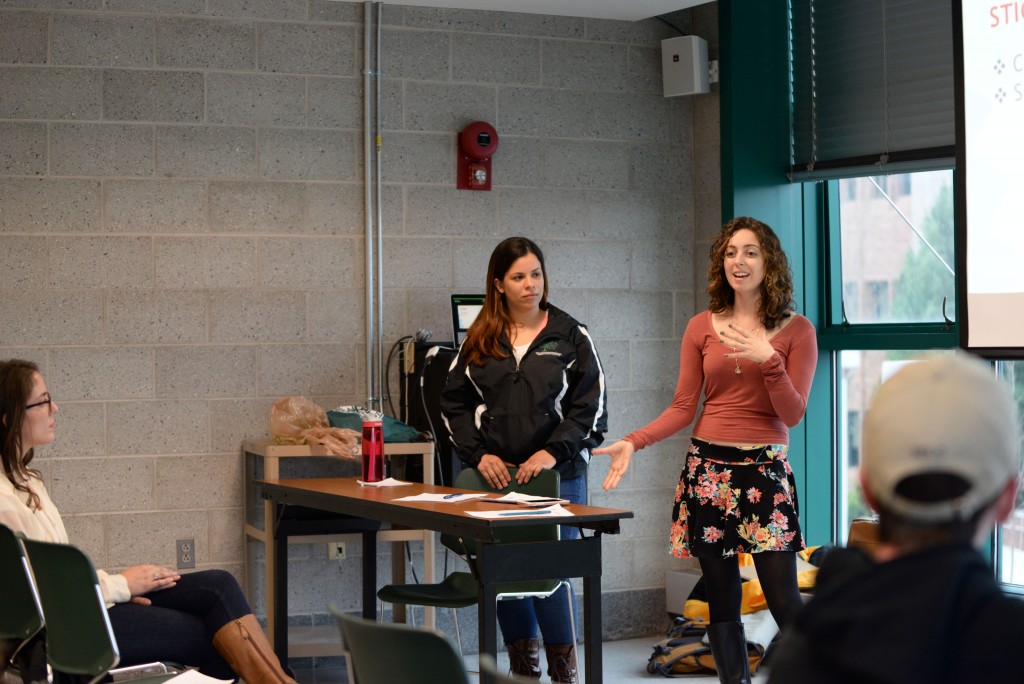
Mental Health Outreach Peer Educators (M-HOPE) interns spoke in the New University Union on Tuesday about the facts, myths and stigmas surrounding depression. An illness that, they said, can never be cured by silence.
M-HOPE interns Hadas Bernstein and Olga Gonzalez, both seniors majoring in psychology, explained that mental illnesses like depression are often stigmatized because they do not primarily manifest physically and go largely unnoticed by others. To further their point, the M-HOPE educators presented a TED talk video from comedian Kevin Breel in which he talked about his own battle with depression.
“Every 30 seconds, somewhere, someone in the world takes their own life because of depression and it’s happening every single day and we have a tendency, as a society, to look at that and go, ‘so what?’” Breel said in the video. “You hold it in and you hide it and even though it’s keeping you in bed every day and it’s making your life feel empty no matter how much you try and fill it, you hide it, because the stigma in our society around depression is very real.”
The presenters explained that one of the best methods for treating depression is to seek help through individual or group therapy.
“We encourage people to speak up about their illness, especially mental illnesses, because when you put a face to something and understand it more in depth, people can realize there shouldn’t be a stigma attached to it,” Bernstein said. “It’s what makes people who they are. We see so many people with mental health disorders, not just depression and no one talks about it and they think something is wrong with them and we hope to eradicate that sentiment.”
Event organizers further stressed the importance of not remaining silent on the issue of depression, offering suggestions such as journaling and staying away from negative activities to cope with depression’s symptoms.
“Write in a journal; it helps to put things in perspective and you’re able to recount what’s actually bothering you,” Gonzalez said. “But mainly, don’t become isolated. With depression, a lot of people find comfort and instant gratification in staying in and not talking to others, but that only serves to make you feel better for that moment. It doesn’t help deal with the problem in the long run.”
To close the event, the presenters asked attendees to share their stories. Alexandra Stein, a junior majoring in psychology, volunteered to talk about her personal journey with depression.
“I was diagnosed with depression when I was 14 and since then I had a lot of friends come and go in my life,” Stein said. “People treat you badly because there is a stigma attached to [depression], but I’ve finally, now in college, been able to find a group of friends who accept me for who I am.”
Gonzalo Quinones, a sophomore majoring in psychology, said he found the event both educational and interesting.
“The video was provocative and it definitely revealed a lot of things that unless you have depression, you wouldn’t know about,” Quinones said. “I’m interested in the phenomena of depression in college students because it’s such a widespread issue that still has a stigma attached to it and I wanted to know more about it.”


